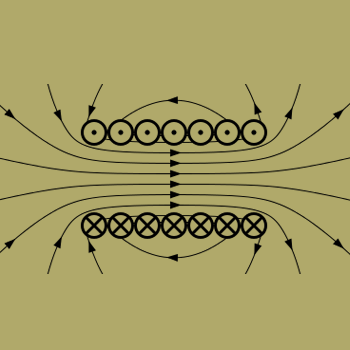As a first simplification, let's take the 9 out of the denominator:
int \frac{1}{(9 x^2 + 4)^2} dx =
\frac{1}{81} int \frac{1}{(x^2 + \frac{4}{9})^2} dx
.
If we have a look at the denominator now, then it somehow reminds us of the (RHS of the) trigonometric identity sec^2 x = tan^2 x + 1, and besides this, we remember that (tan x)' = sec^2 x. Therefore, we make the substitution x \mapsto g ( t ) with
g ( t ) = \frac{2}{3} tan t,
g' ( t ) = \frac{2}{3} sec^2 t, and
g^{-1} ( x ) = tan^{-1} \frac{3 x}{2}.
With this, we get
[ \frac{1}{81} int \frac{1}{(\frac{4 tan^2 t}{9} + \frac{4}{9})^2} \cdot \frac{2}{3} sec^2 t\ dt ]_{t = tan^{-1} \frac{3 x}{2}} =
= [ \frac{1}{24} int \frac{1}{(tan^2 t + 1)^2} \cdot sec^2 t\ dt ]_{t = tan^{-1} \frac{3 x}{2}}
.
Using the trigonometric identity mentioned before, this is the same as
[ \frac{1}{24} int \frac{1}{sec^4 t} \cdot sec^2 t\ dt ]_{t = tan^{-1} \frac{3 x}{2}} =
= [ \frac{1}{24} int cos^2 t\ dt ]_{t = tan^{-1} \frac{3 x}{2}}
.
According to the double-angle formula for the cosine, cos ( 2t ) = 2 cos^2 t - 1, this is the same as
[ \frac{1}{48} int cos( 2 t) + 1\ dt ]_{t = tan^{-1} \frac{3 x}{2}}
,
which is easily evaluated to be
\frac{1}{48} [ \frac{sin(2 t)}{2} + t ]_{t = tan^{-1} \frac{3 x}{2}} + C
.
Lastly, we use the double-angle formula for the sine,
sin (2t) = (2 tan t) / (1 + tan^2 t),
and thus arrive at the result
\frac{1}{48} [ \frac{tan t}{1 + tan^2 t} + t ]_{t = tan^{-1} \frac{3 x}{2}} + C =
= \frac{1}{48} [ \frac{\frac{3 x}{2}}{1 + \frac{9 x^2}{4}} + tan^{-1} \frac{3 x}{2} ] + C =
= \frac{1}{48} [ \frac{6 x}{9 x^2 + 4} + tan^{-1} \frac{3 x}{2} ] + C
.

